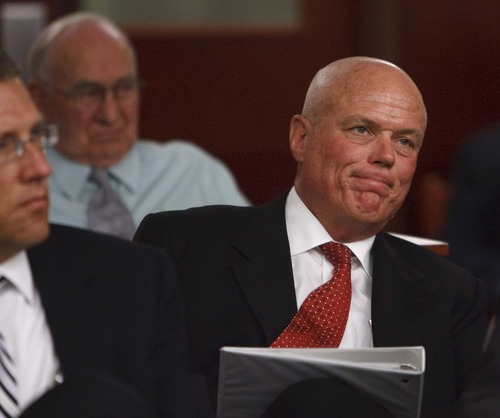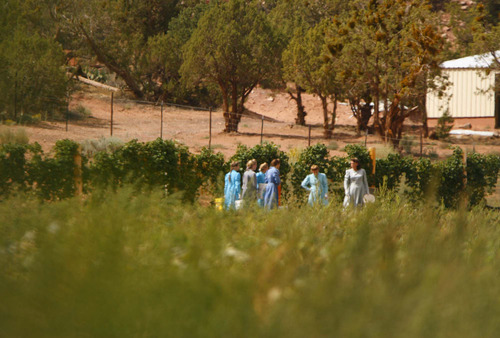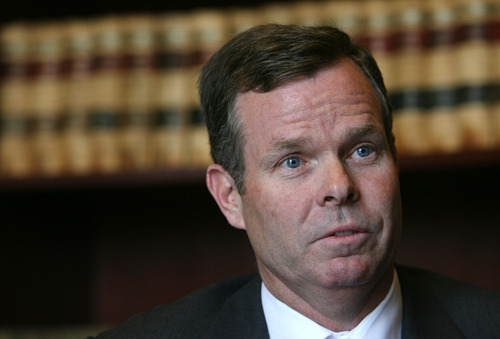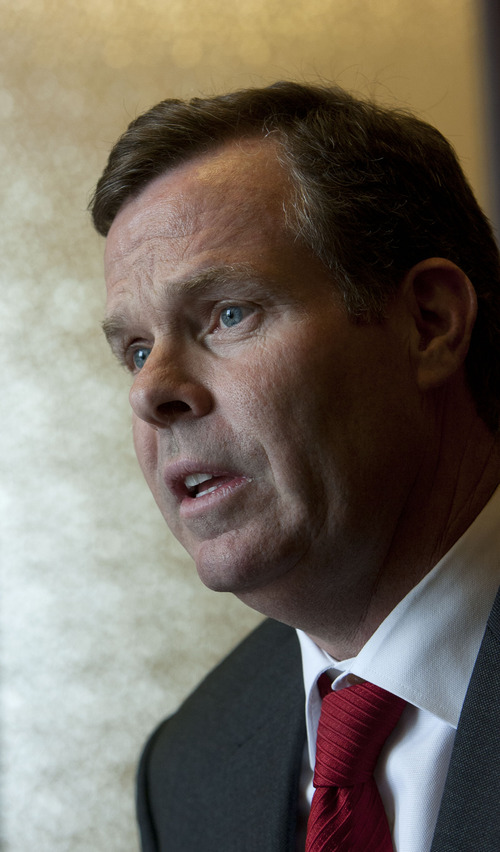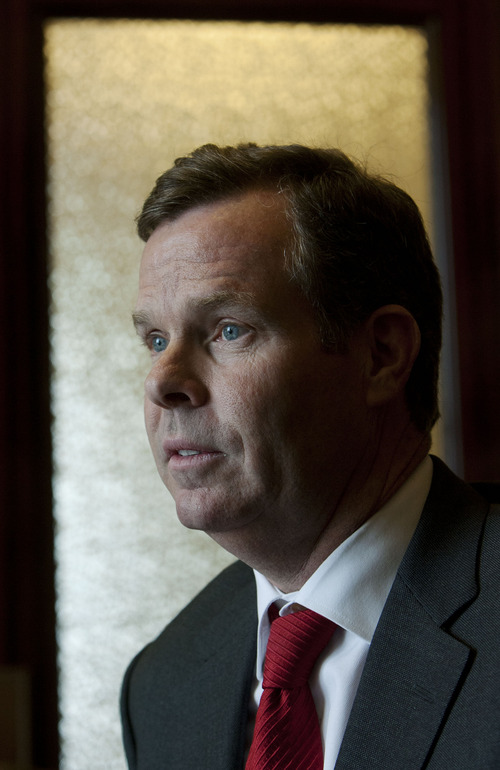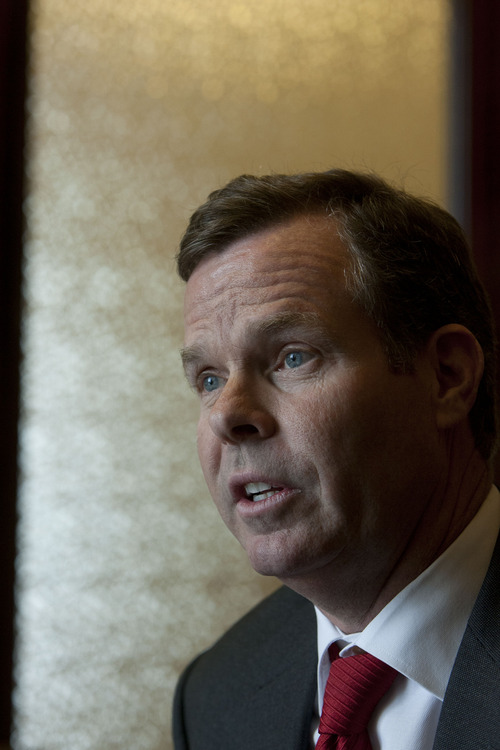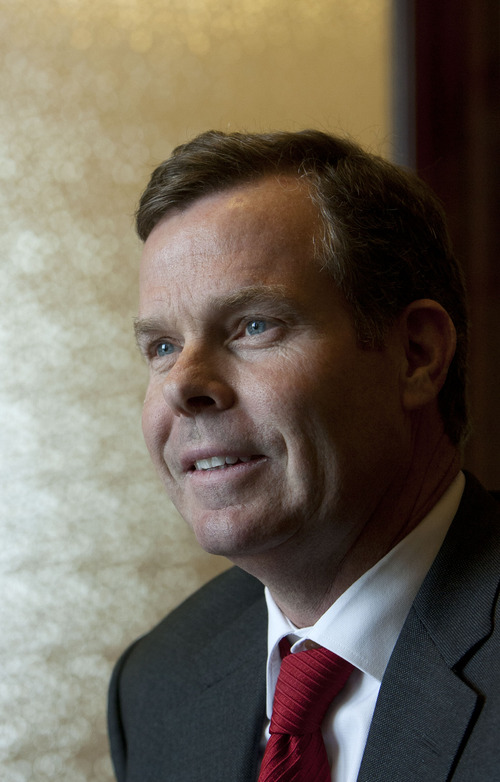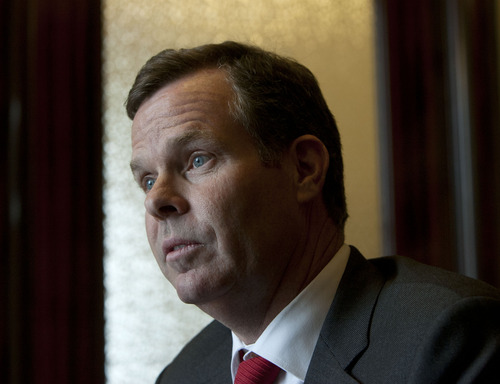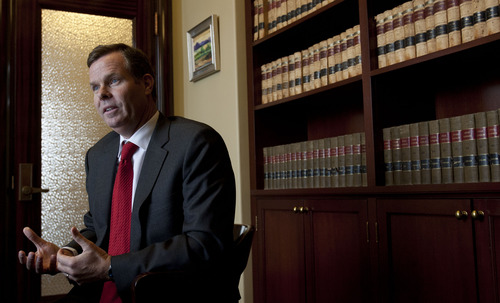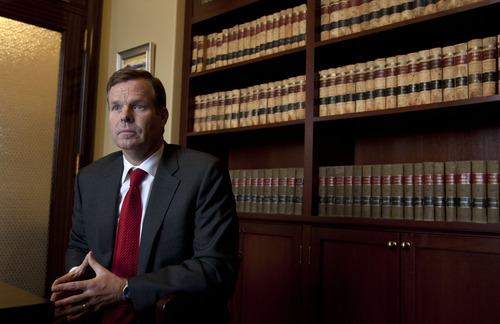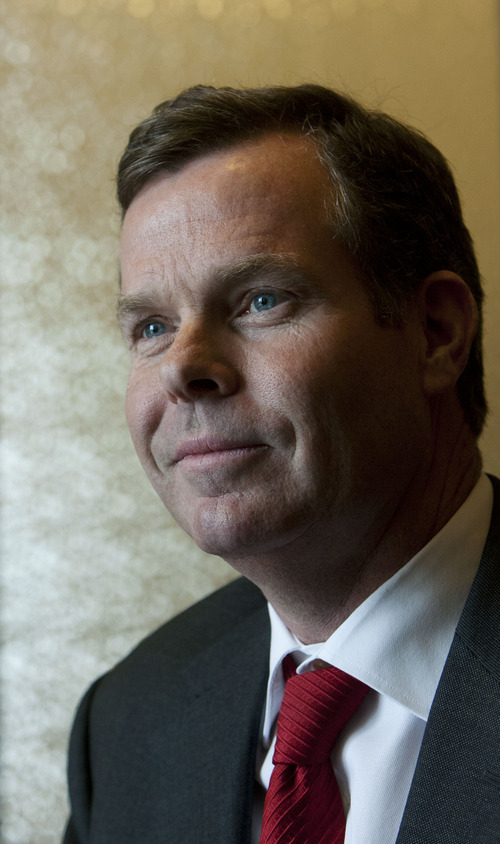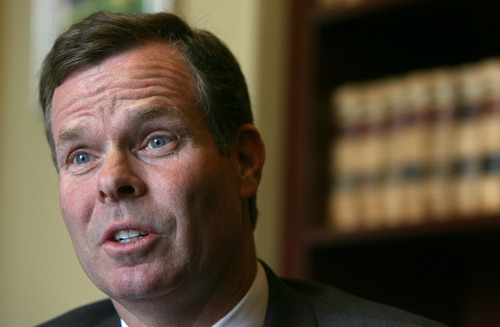This is an archived article that was published on sltrib.com in 2012, and information in the article may be outdated. It is provided only for personal research purposes and may not be reprinted.
Set to take over as Utah's top lawman at a pivotal time for polygamists, Attorney General-elect John Swallow said he doesn't plan to prosecute consenting adults in plural marriages but will defend the law that makes the practice a felony.
"I've thought about that a lot," he said in a recent interview. While Swallow said he's concerned about child abuse, domestic abuse and fraud, "otherwise law-abiding partners are not going to be prosecuted while I'm attorney general."
There are an estimated 38,000 people in polygamous communities, many in Utah, and the state doesn't have the resources to prosecute all those in plural marriages or deal with the ripple-effect consequences, Swallow said. His approach to prosecuting polygamy will continue that of Mark Shurtleff, his predecessor and boss until Jan. 7.
But there will still be plenty of polygamy-related issues drawing Swallow's attention: He will defend the state from a lawsuit challenging Utah's polygamy ban that has progressed further than any other case of its kind, seek an end to a massive case involving a polygamous community's multimillion-dollar property trust, and deal with the fallout from a time of intense turmoil among followers of Fundamentalist Church of Jesus Christ of Latter-Day Saints leader Warren Jeffs.
Swallow, who served as a state lawmaker in the 1990s, was appointed head of the civil divisions of the Utah Attorney General's Office about three years ago. He also worked as a lobbyist and corporate counsel after twice running unsuccessfully for Congress.
Some activists, though, say the state could do more to prosecute abuses within polygamous groups.
"I definitely have felt frustration and anger of what I feel has been ignored for way, way too many years … the abuse in the guise and name of religion," said Kristyn Decker, who grew up in the Apostolic United Brethren and wrote the book 50 Years in Polygamy.
When Jeffs was tried last year for sexually assaulting two girls he took as polygamous wives, Texas prosecutors presented seized sect records of dozens of underage marriages from Utah.
Swallow said he isn't yet privy to that evidence, but "as I get into the office of attorney general and have that authority, we'll do everything we can to uncover any type of abusive practice going on in any community."
The FLDS, meanwhile, is now in the midst of turmoil apparently imposed by Jeffs from his Texas prison cell, with hundreds of members cast out in recent years and others subjected to increasingly bizarre and controlling edicts. Swallow said he's committed to helping ease the effects of what's been called a humanitarian crisis at the sect's home base along the Utah-Arizona border through Safety Net, a committee established by Shurtleff to ensure polygamists have the same access to education and justice as the rest of the state.
"All that we can do, that we can afford to do, we should do," Swallow said.
He'll also inherit one of the state's longest-running legal battles touched off after Shurtleff moved to take control of the FLDS communal property trust in 2005 amid allegations of mismanagement by sect trustees. Last month the state won an important victory when a federal appeals court ruled the approximately $114 million trust should stay under state control, but the fight won't come to a full halt until there's a plan for the state to give up that control.
"I feel it's important for us to help [people who contributed to the trust] reclaim those assets if possible," he said, "then let the state step out of it and let that community … move forward with their own lives without state interference."
He also has to straighten out the millions of dollars in debt owed to Bruce Wisan, the private accountant appointed to run the trust seven years ago, and his attorneys. A judge ordered Shurtleff to help pay some $5.6 million of that money earlier this year — funds Swallow will now have to ask the Legislature to appropriate.
"We cannot force the Legislature to appropriate money," he said. "I'm going to do all I can to encourage the Legislature to comply with the court order and get [funds] into the hand of the special fiduciary so he can pay his bills."
And even as the Utah Legislature meets next month, state attorneys will fight at a hearing Jan. 17 to keep the state law banning polygamy on the books. The polygamous Brown family, stars of the highly rated reality TV show "Sister Wives," is suing to strike down the statue that makes bigamy a third-degree felony. It's not the first attempt to challenge the law, but the Browns' case — argued by a nationally known constitutional attorney — has made more headway than any other.
For pro-polygamy groups, the case is about winning the freedom for consenting adults to marry and conduct their personal lives how they see fit.
"We're definitely hoping something positive will come from it," said Anne Wilde, head of the advocacy group Principle Voices. "What we have tried to do in the last 12 years is try to educate people about the diversity and the fact that we're not all lawbreakers in any other way."
The Browns are relying on the same right-to-privacy principle at the heart of the growing movement to legalize gay marriage, an issue that the U.S. Supreme Court is taking up. Swallow said he hadn't yet decided whether the state would file an amicus brief to weigh in on that national case.
"We have no choice but to defend the law and that's why we're doing it vigorously," he said. "Our job is to protect the laws of the state of Utah."
Twitter: @lwhitehurst
The Polygamy Blog: blogs.sltrib.com/polygblog


